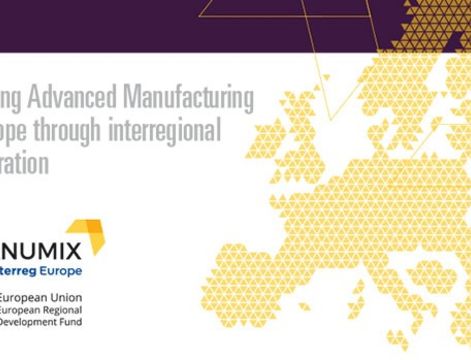
MANUMIX final meeting
MANUMIX will present its results during its final high-level policital dissemination that will be streamed.
Evaluation of innovation policy-mixes goes beyond traditional monitoring and innovation systems as it involves evaluating instruments interactions and overlaps from an integrated view. This is a challenge for regions and especially with regards the implementation of their Research and innovation strategies for smart specialization (RIS3), as an innovation policy-mix has to be designed and implemented oriented towards a thematic priority.
4 Regions with Advanced Manufacturing (AM) identified within their RIS3 strategy; The Basque Country, Lithuania, Piedmonte and West Wales and the Valleys have joint the MANUMIX consortium to learn best practices through the exchange of experience in the evaluation and monitoring of their current innovation policy-mixes, a common challenge in the implementation process of RIS3 priorities.
The Interregional learning approach of the first phase of the project will have as the main result an ad-hoc action plan for each region to implement. During the second phase of the projects, each partner will monitor the implementation process in the region. The Consortium will have the expert support of Orkestra-Basque Institute of Competitiveness (Deusto Foundation) (Advisory Partner), an institution expert on the study of competitiveness and regional development, that will support all the partners through the learning process, providing advice on the definition of their action plan and further monitorization of the implementation.
Thus, the general objective of MANUMIX is to strengthen and improve the effectiveness and efficiency of innovation policy-mixes for AM at regional level through evaluation. This involves evaluating interactions of AM instruments, trying therefore to assess both the complementarities and the overlaps among them.
Improving and strengthening the current evaluation systems, partners and later other EU regions will enhance the implementation of regional development policies and programmes that support the delivery of innovation in the AM smart specialization area.
€758,771.00
Research and innovation
The way to evaluate the policy mix in advanced manufacturing taking advantage of existing synergies and avoiding overlaps
Smart specialisation requires an adaptation of some public instruments, as it involves combining previous policy rationales based on functional and systemic approaches with new rationales, linked to vertical areas.
The BC in its latest ERDF Operational Programme (OP), which cofounds its RIS3, introduced different modifications to align R&D&I investments to RIS3 priorities (advanced manufacturing-AM, energy and biosciences).
These changes where focused on the 1st Thematic Objective (TO), where 44.6% of the funds are allocated.
However, this is not enough for the development of AM in the BC. A coordinated action with other instruments cofounded by ERDF and related to other TO of the OP is needed:
Specifically:
- TO 2 (10.5%), due to the impact of ICTs on Industry 4.0.
- TO 3 (5.7%), as SMEs are the basis of the manufacturing industry in the BC.
Therefore, the need for further progress is perceived deepening on the interrelationships and complementarities between different instruments related to AM and cofounded by ERDF. It is necessary to learn about what works and what does not work but following an integrated approach. That means learning about a single instrument but also, learning about the combination of them.
As AM is the one of the priority areas for the BC, this policy learning is a key issue for RIS3 implementation, in order to the use of ERDF funds in a more efficient way to improve the R&D&I results and competitiveness.
Policy instrument “Promotion of activities of centres of competence and centres for innovation and technology transfer” operates under the Smart specialization strategy of Lithuania. The objective of the instrument is to employ existing R&D infrastructure for better collaboration between research and business, as well to invest into the first steps of the of the idea commercialization: to identify the commercial potential, to develop prototypes, to mature the ideas and provide the necessary support for further testing. The policy instrument is financed by ERDF and is directly related to the OP Priority axis 1 Specific objective 1.2.2 “Increasing the extent of knowledge commercialisation and technology transfer”. Funded activities will be:
1. Promotion of activities of competence centres
2. Promotion of activities of innovation and technology transfer centres
Eligible applicants will be the research and higher education institutions; eligible partners will be public institutions performing activities in research or studies.
Within the scale of this project, the aim is to increase the overall usage of the existing R&D infrastructure for developing and testing new advanced manufacturing technologies and better commercialization of activities in the field of advanced manufacturing.
Through its Axis 1 (related to TO1) Piedmont ERDF ROP has set a wide range of policy measures in order to support R&D&I in the fields selected by the regional S3. Advanced manufacturing is a transversal key topic of the Piedmont S3, fostering smarter and cleaner industrial production and processes. Under IP 1.b the ERDF ROP, for example, supports the strengthening of regional clusters and the development of technological platforms and foster enterprises in transforming research results in industrial products and processes. Smart Manufacturing is also included in the National S3 and a National Technological Cluster was launched in 2012, with the participation of several associates from Piedmont, among which the regional cluster on Mechatronics. Furthermore, Piedmont, thorugh its ERDF ROPs, is partner of MANUNET network since 2007 and has invested until now compehendively approx. 27M€ of public funding to sustain transnational R&I project in the filed of manufacturing. The call 2016 is currently open under the ERDF ROP 2014-2020. The Evaluation Plan of the ERDF ROP aims at assessing the effectiveness of these policy measures; the quality of this evaluation exercise is crucial in order to provide regional decision makers with reliable information on the effects of these policies. To this purpose, the quality of of the evaluation process, with a special reference to related data/indicators, needs to be improved.
The Economic Prioritisation Framework for Advanced Manufacturing in the Operational Programme identifies that, despite possessing strong higher education institutes, Wales has low levels of industrial R&D and that existing innovation is mostly incremental and at the level of 'new to company'. A number of specialised operations within the R&I priority are intended to address these weaknesses. The interventions supported will provide industry with e.g. specialist advisors on innovation, IP, manufacturing and design, RD&I grants for business, improved technology transfer between business and higher education institutes. Exisiting measures and evaluation methods have proved inadequate to properly evaluate the effect particular policy instruments have on wider economic outcomes. We wish to rectify this by learning from the experiences of similar EU regions and developing an improved evaluation approach.

MANUMIX will present its results during its final high-level policital dissemination that will be streamed.
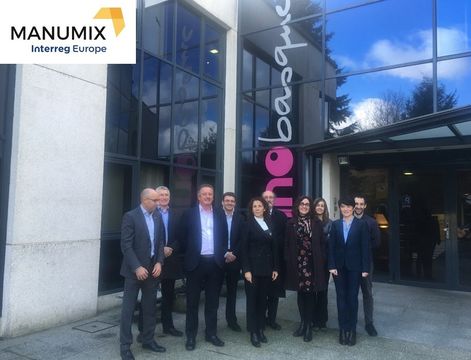
The objective was to gather useful learnings to advance the implementation of the Welsh Action Plan.

MOSTA hosts the third Learning Journey of the MANUMIX INTERREG EUROPE in Vilnius, Lithuania
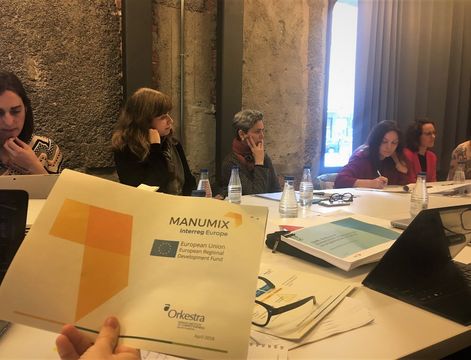
The Lithuanian evaluation agency, MOSTA, analyses the Basque Government's R&D programmes through peer reviews
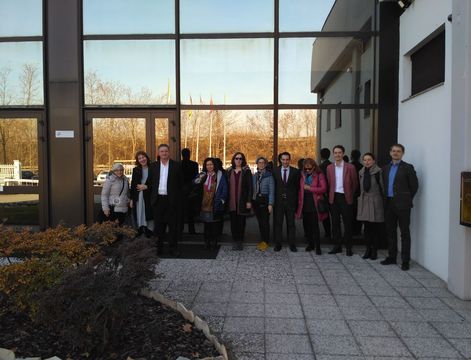
On 21 and 22 November, Finpiemonte will host the second international meeting of members of the MANUMIX Interreg Europe project in Turin.
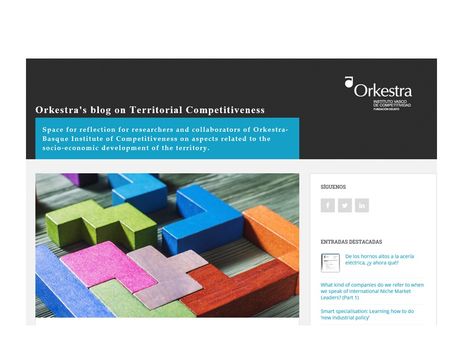
Orkestra's blog on territorial competitiveness
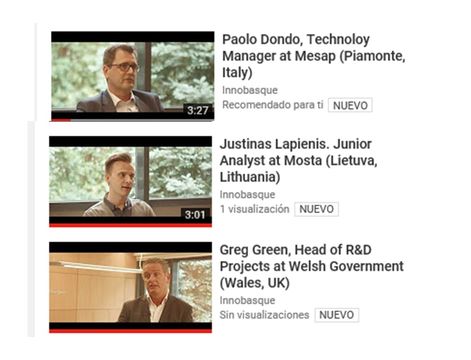
The partners of Manumix tell us their experience in the 1st Learning Journey
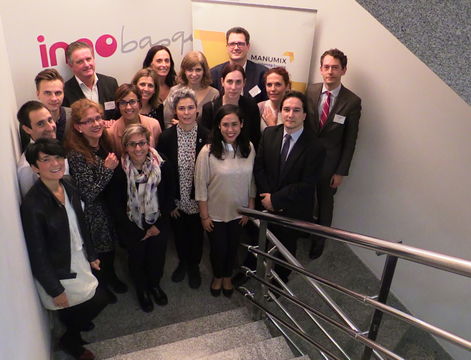
Manumix Interreg Europe hold their first Learning Journey in the Basque Country on the 17, 18 and 19 may
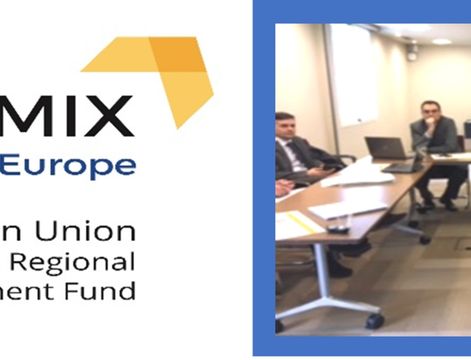
Representatives from Berkoa, Fundiciones Garbi, Nemak Spain, Karten Space, Fagor Arrasate and Angulas Aguinaga meet at Innobasque, having been invited by the Ba...
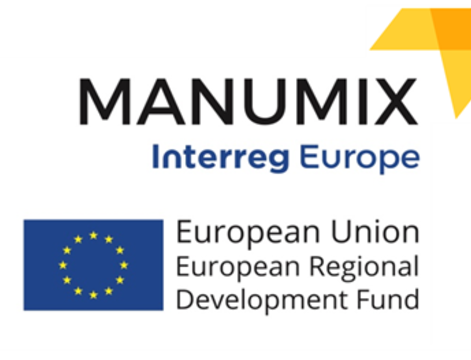
Basque Country, at the head of a European project to improve advanced manufacturing policies